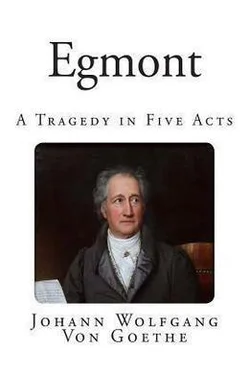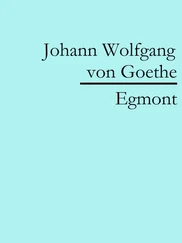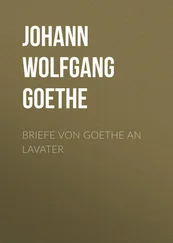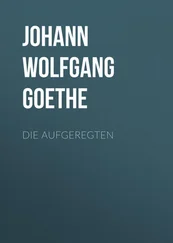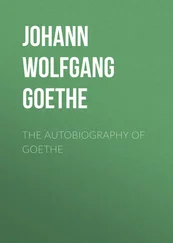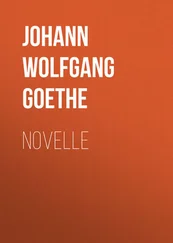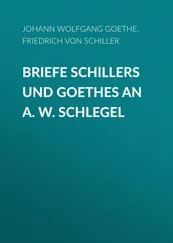Johann von Goethe - Egmont
Здесь есть возможность читать онлайн «Johann von Goethe - Egmont» весь текст электронной книги совершенно бесплатно (целиком полную версию без сокращений). В некоторых случаях можно слушать аудио, скачать через торрент в формате fb2 и присутствует краткое содержание. Год выпуска: 2015, Издательство: epubBooks Classics, Жанр: Драматургия, на английском языке. Описание произведения, (предисловие) а так же отзывы посетителей доступны на портале библиотеки ЛибКат.
- Название:Egmont
- Автор:
- Издательство:epubBooks Classics
- Жанр:
- Год:2015
- ISBN:нет данных
- Рейтинг книги:4 / 5. Голосов: 1
-
Избранное:Добавить в избранное
- Отзывы:
-
Ваша оценка:
- 80
- 1
- 2
- 3
- 4
- 5
Egmont: краткое содержание, описание и аннотация
Предлагаем к чтению аннотацию, описание, краткое содержание или предисловие (зависит от того, что написал сам автор книги «Egmont»). Если вы не нашли необходимую информацию о книге — напишите в комментариях, мы постараемся отыскать её.
Egmont — читать онлайн бесплатно полную книгу (весь текст) целиком
Ниже представлен текст книги, разбитый по страницам. Система сохранения места последней прочитанной страницы, позволяет с удобством читать онлайн бесплатно книгу «Egmont», без необходимости каждый раз заново искать на чём Вы остановились. Поставьте закладку, и сможете в любой момент перейти на страницу, на которой закончили чтение.
Интервал:
Закладка:
Egmont. And is not the good–will of a people the surest, the noblest pledge? By heaven! when can a monarch hold himself more secure, ay, both against foreign and domestic foes, than when all can stand for one, and one for all?
Alva. You would not have us believe, however, that such is the case here at present?
Egmont. Let the king proclaim a general pardon; he will thus tranquillize the public mind; and it will be seen how speedily loyalty and affection will return, when confidence is restored.
Alva. How! And suffer those who have insulted the majesty of the king, who have violated the sanctuaries of our religion, to go abroad unchallenged! living witnesses that enormous crimes may be perpetrated with impunity!
Egmont. And ought not a crime of frenzy, of intoxication, to be excused, rather than horribly chastised? Especially when there is the sure hope, nay, more, where there is positive certainty that the evil will never again recur? Would not sovereigns thus be more secure? Are not those monarchs most extolled by the world and by posterity, who can pardon, pity, despise an offence against their dignity? Are they not on that account likened to God himself, who is far too exalted to be assailed by every idle blasphemy?
Alva. And therefore, should the king contend for the honour of God and of religion, we for the authority of the king. What the supreme power disdains to avert, it is our duty to avenge. Were I to counsel, no guilty person should live to rejoice in his impunity.
Egmont. Think you that you will be able to reach them all? Do we not daily hear that fear is driving them to and fro, and forcing them out of the land? The more wealthy will escape to other countries with their property, their children, and their friends; while the poor will carry their industrious hands to our neighbours.
Alva. They will, if they cannot be prevented. It is on this account that the king desires counsel and aid from every prince, zealous co–operation from every stadtholder; not merely a description of the present posture of affairs, or conjectures as to what might take place were events suffered to hold on their course without interruption. To contemplate a mighty evil, to flatter oneself with hope, to trust to time, to strike a blow, like the clown in a play, so as to make a noise and appear to do something, when in fact one would fain do nothing; is not such conduct calculated to awaken a suspicion that those who act thus contemplate with satisfaction a rebellion, which they would not indeed excite, but which they are by no means unwilling to encourage?
Egmont (about to break forth, restrains himself, and after a brief pause, speaks with composure). Not every design is obvious, and many a man's design is misconstrued. It is widely rumoured, however, that the object which the king has in view is not so much to govern the provinces according to uniform and dearly defined laws, to maintain the majesty of religion, and to give his people universal peace, as unconditionally to subjugate them, to rob them of their ancient rights, to appropriate their possessions, to curtail the fair privileges of the nobles, for whose sake alone they are ready to serve him with life and limb. Religion, it is said, is merely a splendid device, behind which every dangerous design may be contrived with the greater ease; the prostrate crowds adore the sacred symbols pictured there, while behind lurks the fowler ready to ensnare them.
Alva. This must I hear from you?
Egmont. I speak not my own sentiments! I but repeat what is loudly rumoured, and uttered now here and now there by great and by humble, by wise men and fools. The Netherlanders fear a double yoke, and who will be surety to them for their liberty?
Alva. Liberty! A fair word when rightly understood. What liberty would they have? What is the freedom of the most free? To do right! And in that the monarch will not hinder them. No! No! They imagine themselves enslaved, when they have not the power to injure themselves and others. Would it not be better to abdicate at once, rather than rule such a people? When the country is threatened by foreign invaders, the burghers, occupied only with their immediate interests, bestow no thought upon the advancing foe, and when the king requires their aid, they quarrel among themselves, and thus, as it were, conspire with the enemy. Far better is it to circumscribe their power, to control and guide them for their good, as children are controlled and guided. Trust me, a people grows neither old nor wise, a people remains always in its infancy.
Egmont. How rarely does a king attain wisdom! And is it not fit that the many should confide their interests to the many rather than to the one? And not even to the one, but to the few servants of the one, men who have grown old under the eyes of their master. To grow wise, it seems, is the exclusive privilege of these favoured individuals.
Alva. Perhaps for the very reason that they are not left to themselves.
Egmont. And therefore they would fain leave no one else to his own guidance. Let them do what they like, however; I have replied to your questions, and I repeat, the measures you propose will never succeed! They cannot succeed! I know my countrymen. They are men worthy to tread God's earth; each complete in himself, a little king, steadfast, active, capable, loyal, attached to ancient customs. It may be difficult to win their confidence, but it is easy to retain it. Firm and unbending! They may be crushed, but not subdued.
Alva (who during this speech has looked round several times). Would you venture to repeat what you have uttered, in the king's presence?
Egmont. It were the worse, if in his presence I were restrained by fear! The better for him and for his people, if he inspired me with confidence, if he encouraged me to give yet freer utterance to my thoughts.
Alva. What is profitable, I can listen to as well as he.
Egmont. I would say to him—'Tis easy for the shepherd to drive before him a flock of sheep; the ox draws the plough without opposition; but if you would ride the noble steed, you must study his thoughts, you must require nothing unreasonable, nor unreasonably, from him. The burgher desires to retain his ancient constitution; to be governed by his own countrymen; and why? Because he knows in that case how he shall be ruled, because he can rely upon their disinterestedness, upon their sympathy with his fate.
Alva. And ought not the Regent to be empowered to alter these ancient usages? Should not this constitute his fairest privilege? What is permanent in this world? And shall the constitution of a state alone remain unchanged? Must not every relation alter in the course of time, and on that very account, an ancient constitution become the source of a thousand evils, because not adapted to the present condition of the people? These ancient rights afford, doubtless, convenient loopholes, through which the crafty and the powerful may creep, and wherein they may lie concealed, to the injury of the people and of the entire community; and it is on this account, I fear, that they are held in such high esteem.
Egmont. And these arbitrary changes, these unlimited encroachments of the supreme power, are they not indications that one will permit himself to do what is forbidden to thousands? The monarch would alone be free, that he may have it in his power to gratify his every wish, to realize his every thought. And though we should confide in him as a good and virtuous sovereign, will he be answerable to us for his successor? That none who come after him shall rule without consideration, without forbearance! And who would deliver us from absolute caprice, should he send hither his servants, his minions, who, without knowledge of the country and its requirements, should govern according to their own good pleasure, meet with no opposition, and know themselves exempt from all responsibility?
Читать дальшеИнтервал:
Закладка:
Похожие книги на «Egmont»
Представляем Вашему вниманию похожие книги на «Egmont» списком для выбора. Мы отобрали схожую по названию и смыслу литературу в надежде предоставить читателям больше вариантов отыскать новые, интересные, ещё непрочитанные произведения.
Обсуждение, отзывы о книге «Egmont» и просто собственные мнения читателей. Оставьте ваши комментарии, напишите, что Вы думаете о произведении, его смысле или главных героях. Укажите что конкретно понравилось, а что нет, и почему Вы так считаете.
